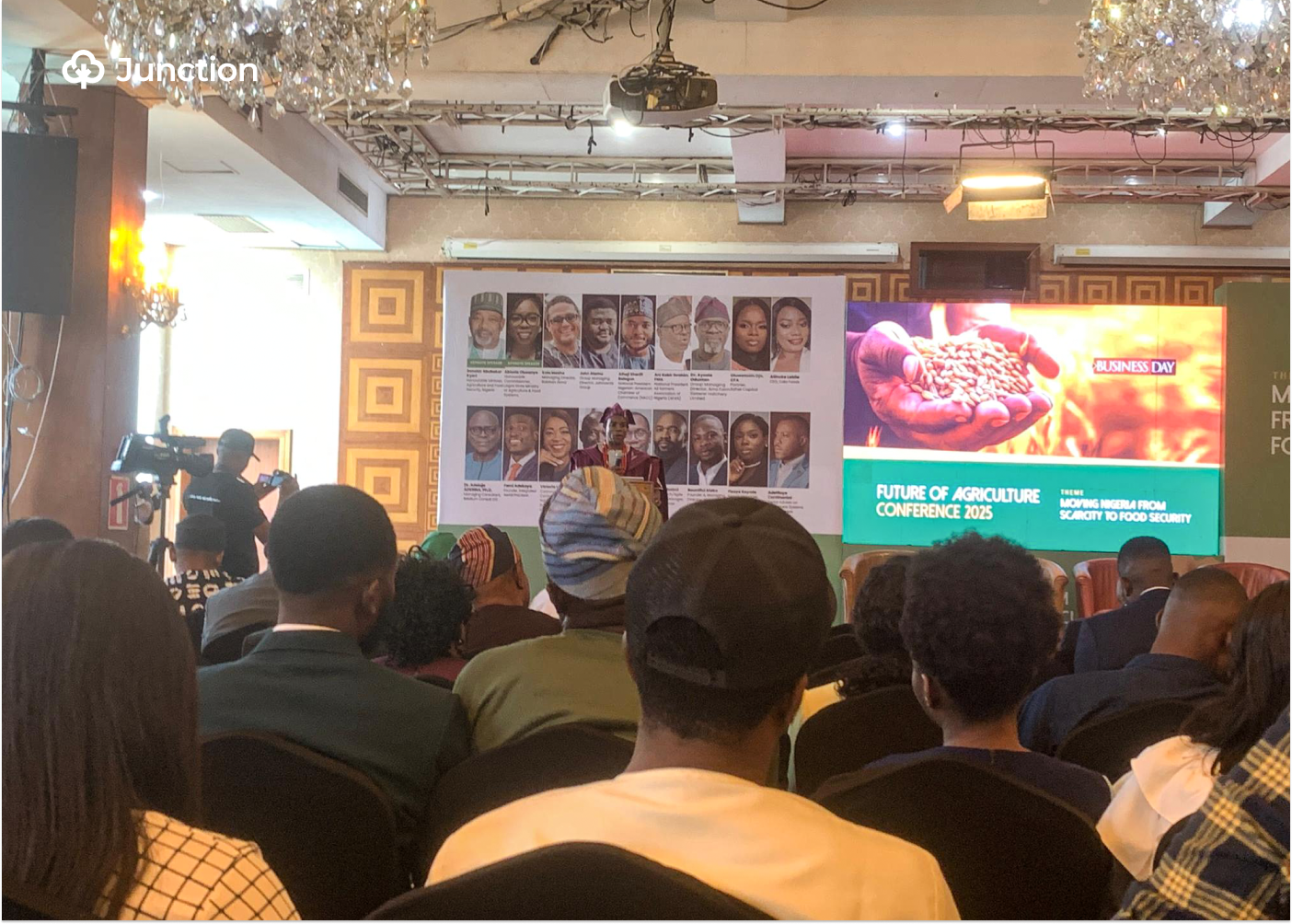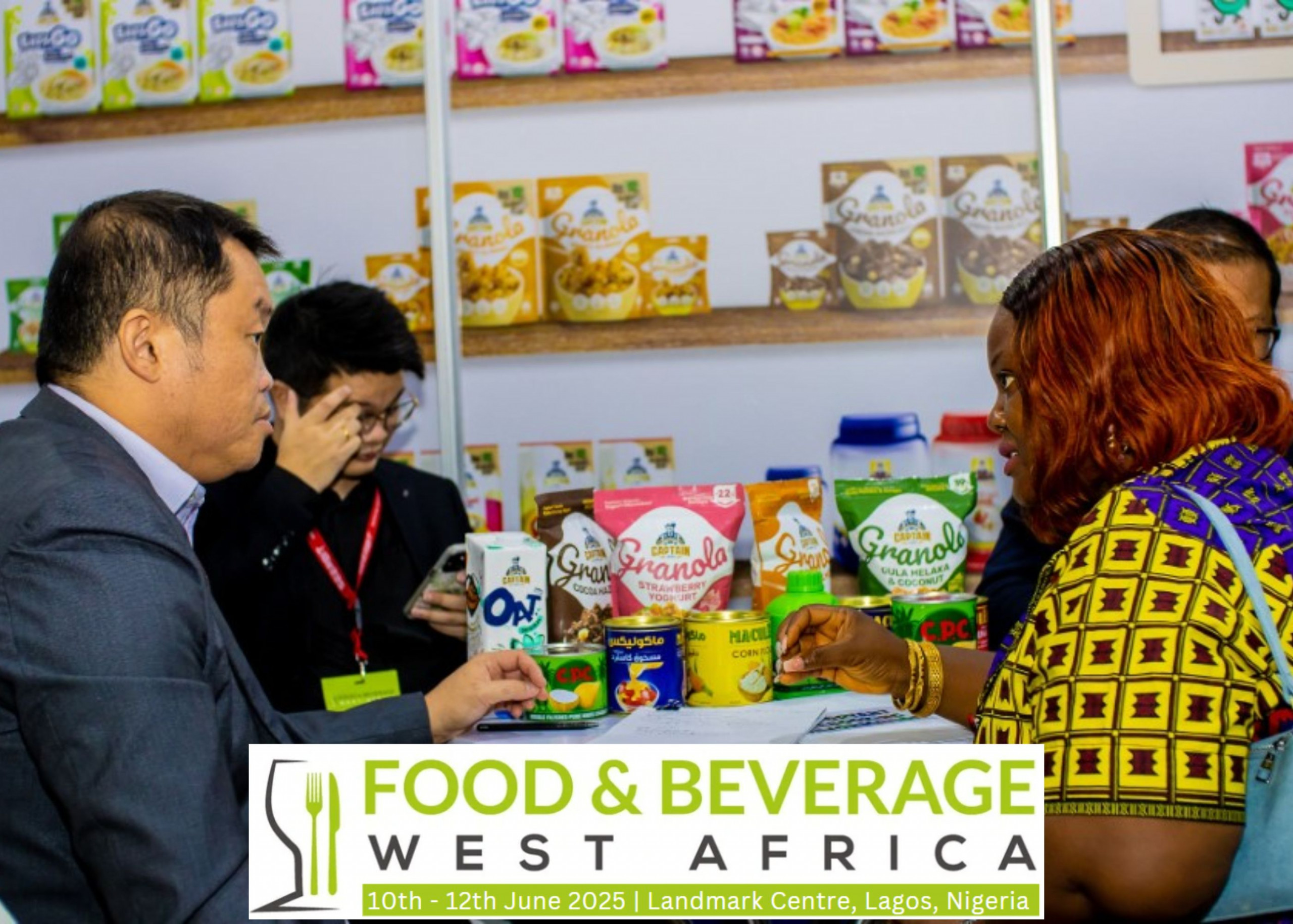BusinessDay Media’s Future of Agriculture Conference 2025 focused on how Nigeria can move from scarcity to food security. The event brought together government representatives, farmers, innovators and key industry players in the country’s agricultural sector.
Speakers explored strategies for Nigeria to become self-sufficient and tackle the food insecurity crisis, which according to the Food and Agriculture Organization (FAO), threatens 33.1 million Nigerians in 2025.
The economic impact of food insecurity
Nigeria’s dependence on food imports has increased over the years due to inadequate local production. Billions of dollars are spent annually on food importation, putting a strain on the nation’s foreign exchange reserves.
Experts agreed that with the right infrastructure and policy implementation, Nigeria can turn the tide. Victoria Uwadoka, Corporate Communications Lead at Nestlé Nigeria, insisted that strong policies already exist, but strict implementation and investment in infrastructure are necessary to promote local sourcing and reduce dependency on imports.
Deji Rotimi, CEO of HH Holdings Group, argued that food security should not be treated as business as usual but as a national emergency. Uwadoka echoed this sentiment, advocating for a coordinated effort, similar to the COVID-19 response, to address food insecurity.
Meanwhile, Sheriff Balogun, National President of the Nigerian-American Chamber of Commerce, reinforced the importance of funding the sector properly. Without proper investment, farmers will remain under-equipped, and Nigeria will continue to rely on imports.
Securing food for Nigerians and future generations
During panel sessions at the conference moderated by Bountiful Atako, Founder & Managing Director of Alana Green Limited and Fisayo Kayode of Sahel Consulting, panelists focused on issues concerning food security in Nigeria.
The industry experts explored the challenges to being a self-sufficient and food-secure nation while offering solutions to them.
- Holistic government intervention:
A comprehensive approach involving agriculture-friendly policies, provision of subsidies, fertiliser distribution, crop insurance programs, and increased investment in agricultural research is essential to improving Nigeria’s food security. This includes developing drought-resistant and high-yield crop varieties, as well as strengthening infrastructure and direct farmer support. - Infrastructure development:
Improving roads, cold storage facilities, and processing plants is crucial to reducing post-harvest losses and enhancing food security. Bridging these infrastructure gaps requires joint efforts from both the government and the private sector. - Providing accessible financial solutions:
Access to affordable agricultural financing is essential for unlocking Nigeria’s agricultural potential. High lending rates hinder smallholder farmers from securing the capital needed to scale food production. Financial institutions are encouraged to adopt models like Banking as a Service (BAAS) to better integrate with farmers, providing essential inputs and improving value chains. Additionally, farmers are advised to form cooperatives or cluster groups to improve access to credit, reduce risks, and drive a more systemic, interconnected approach to agriculture. - Adopting modern technology and mechanised farming:
Embracing modern agricultural technology, such as drones and precision farming, can enhance efficiency, reduce waste, protect crops, and increase yields. Mechanised farming equipment, like tractors, remains scarce, limiting productivity. Innovative models—such as pay-per-use systems—are needed to make mechanisation more accessible and affordable for smallholder farmers. Additionally, farmer education is essential to ensure effective use of these technologies. - Eliminating supply chain inefficiencies:
Nigeria’s food supply chain faces major inefficiencies that hinder productivity and increase reliance on food imports. A well-structured value chain—from production to market access—is essential. Key areas for improvement include infrastructure, policy implementation, storage facilities, and affordable transportation. Addressing these gaps will reduce post-harvest losses, boost local sourcing, and strengthen food security.
Exploring food processing to reduce post-harvest losses
One key solution discussed was processing agricultural produce instead of relying solely on raw storage. Lebile used corn as an example, explaining that processing it into pap powder extends its shelf life and reduces waste. “We work with aggregators who take the produce from farmers and store what they need. If we scale up processing, we can minimise waste and improve food availability,” she said.
Adeshina added that post-harvest losses, while a challenge, also present opportunities for agripreneurs willing to invest in processing and storage solutions.
Sheriff Balogun, National President of the Nigerian-American Chamber of Commerce, highlighted the difficulties faced by smallholder farmers, particularly in terms of seed quality, infrastructure, and high input costs.
“A farmer with 3,000 plants on one hectare can barely feed those around him, let alone the entire country,” he remarked. With 32 million smallholder farmers still relying on outdated methods, Nigeria’s agricultural productivity remains critically low.
Additionally, poor seed quality and lack of access to better agricultural practices continue to limit the yields of smallholder farmers. Without significant improvements in these areas, the sector’s growth will remain slow.
How Nigeria’s cocoa industry can thrive
The Managing Director of Premium Cocoa Product (Ile Oluji) Limited, Bamikole Sunday, who also spoke at the conference, explored Nigeria’s situation in the cocoa production industry.
Bamikole pointed out that Nigeria still faces challenges such as low yields, poor farm management, and the lack of value-added processes in the cocoa industry. This, according to him, hinders the maximisation of the potential wealth the cocoa industry can bring to the nation, which is one of the biggest producers of cocoa globally.
He stressed the importance of investing in farming technology and training of farmers to improve cocoa farming practices, boost farmers’ productivity and increase Nigeria’s competitiveness in the global market.
Using Ile-Oluji as a reference point, Bamikole explains how sustainable farming practices and the adoption of modern processing techniques can yield more results in terms of productivity, revenue and building a viable cocoa value chain.
According to him, the company’s adoption of modern processing techniques not only improved the quality of cocoa but also added value locally and further helped the economy by creating jobs and supporting smallholder farmers.
“We cannot afford to continue exporting raw cocoa beans when there is so much value to be added locally. The future of cocoa in Nigeria depends on our ability to process and innovate within the sector,” he noted.
Bamikole mentioned that sustainable cocoa farming methods helped to reduce the environmental impact of production and increase the profitability of farmers. He also discussed the company’s efforts in addressing the issue of youth involvement in the cocoa sector, citing that young people need to see cocoa farming as a viable and profitable career.
Setting the tone for a future of abundant food
Lagos State Commissioner for Agriculture and Food Systems, Abisola Olusanya, representing Governor Babajide Sanwo-Olu at the event, outlined the government’s three-pillar strategy to ensure sustainable food supply across the country.
The strategy focuses on
- Building subnational alliances to harness the agricultural strengths of regions across the country
- Implementing nationwide rural infrastructure development intervention to boost agricultural productivity, and
- Mobilisation of the private sector to innovate and improve agricultural value chains.
It also proposed a Feed Nigeria Pact, which aims to unite regions with unique agricultural strengths to support national food security.
As Olusanya listed, some programs like the Ounje Eko food market and the Eko Flavours Project, implemented by Lagos State to combat food scarcity, are already yielding results. She however noted that market access and structural inefficiencies in traditional food hubs hindering distribution are challenges to the program’s success.
Reinforcing the message of the government’s interventions in the agriculture sector, the Honourable Minister of Agriculture and Food Security, Senator Abubakar Kyari, also outlined the federal government’s multi-faceted approach to agriculture reform in the country.
Represented by his Technical Advisor for Administration and Value Chains Coordination, Olajide Oladamolami, he explained that the approach includes support for smallholder farmers, access to modern technologies, and improved market linkages.
The minister acknowledged that while the challenges were vast, Nigeria’s agricultural potential is immense, particularly in areas like crop production, livestock farming, and fisheries.
“The future of agriculture in Nigeria is bright, but we must take bold steps now,” Kyari stated. “We need to move beyond rhetoric to concrete actions that will reshape the agricultural landscape for future generations.”
The path to food security
The event concluded with closing remarks by the Editor of BusinessDay Media Ltd., reflecting on the conversations of the day and reiterating the commitment of all stakeholders to moving Nigeria toward food security. The Future of Agriculture Conference 2025 was not only a platform for discussing the challenges of the agricultural sector but also a call to action for every Nigerian to play a part in securing the nation’s future through sustainable farming practices, technology adoption, and policy reform.
In conclusion, the discussions at the conference highlighted that while there are significant challenges to achieving food security in Nigeria, there is also a clear path forward. By focusing on modernising farming practices, increasing mechanisation, improving market access, and fostering collaboration between all sectors, Nigeria can overcome its food security challenges. The event reaffirmed that with the right policies, support systems, and technological advancements, the future of agriculture in Nigeria looks promising.



